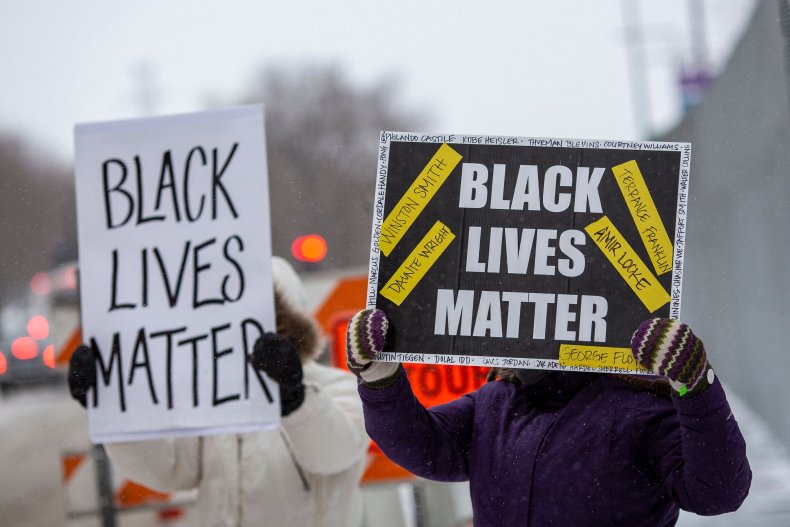In the aftermath of the death of George Floyd in the summer of 2020, as mass demonstrations and then violent riots rocked American cities, the Black Lives Matter (BLM) movement essentially completed its takeover of American institutions. No sector of society was more affected than academia, where supporters of intersectional ideology and critical race theory had already largely captured administrations.
But one institution of higher learning has taken a tentative but crucial step back from the woke promises it made at the height of the BLM moral panic.
In an attempt to preserve their liberal bona fides after the summer of demonstrations and riots, Penn State agreed, like numerous other universities, to create an institute dedicated to "anti-racism." It would, in the words of Boston University institute leader and leading critical race theory (CRT) ideologue Ibram X. Kendi, dedicate itself to building a "a world where racial equity and social justice prevail." And it would do so by imposing a racial prism on every issue and person, rejecting the goal of a colorblind society in favor of an eternal racial struggle—clearly antithetical to justice or racial harmony.
But after Penn State got a new president, it canceled the project. Though the new president included a pledge of fealty to the BLM agenda in her statement and said it would be "more impactful" to direct the funds toward existing efforts, the campus Left erupted with anger.
As a recent Washington Post article made clear, many CRT advocates are concerned that the Penn State decision could represent a turning point in the battle, and encourage other universities to begin resisting BLM demands.
In 2020 those in charge of institutions of higher learning consistently acquiesced to demands made in the name of "racial justice" or "anti-racism." Rare is the college that hasn't adopted the DEI—diversity, equity, and inclusion—mantra. Most have installed a cadre of woke commissars whose job is to enforce adherence to the DEI catechism.
But the fate of the proposed Penn State Center for Racial Justice illustrates that the discussion about anti-racist curricula and initiatives is no longer one-sided.
An anonymously written document was circulated among university trustees in 2021 raising questions about whether the university should be explicitly endorsing critical race theory. Although the document expressed support for "anti-racist scholarship," it also asked "whether teaching America's exceptionalism remains a core objective at Penn State."

The answer to that question at schools where "anti-racism" now reigns is "no." CRT seeks to rewrite American history, asserting the United States was born in prejudice and remains governed by structural and institutional racism. In that way CRT advocates are able to dismiss the enormous progress made against racism since the triumph of the civil rights movement in the 1960s. They also label any questioning of their efforts, like the board document, as inherently racist.
"Anti-racism" claims that race and so-called "white privilege" pervade society in ways that cannot be overcome by a traditional liberal approach which views all people as individuals and judges them on their own merits. Instead, everyone must be indoctrinated in race consciousness as part of a never-ending struggle.
This emphasis on privilege ignores other factors, like income inequality. CRT is a race-based doctrine which portrays poor whites as privileged and wealthy people of color as unprivileged. The compulsion to categorize everyone, including racial, ethnic, and religious minorities, as either members of the favored victim class or the unfavored oppressor class creates anomalies—such as the assumption that Jews are all "white" and "privileged." That's a worldview that has granted DEI-driven college administrators a permission slip for antisemitism.
Any school where "equity"—and its implied denunciation of "equality" and colorblindness as not merely unattainable but undesirable—rules, and which interprets conservative ideas and American exceptionalism as inherently racist, may be incapable of reform.
It's possible, therefore, that Penn State's decision was motivated by a belief that racial institutes will reinterpret their schools' past decisions as racist and call for reparations of some sort.
Still, even the smallest victories against CRT indoctrination—especially at the university level where leftist ideologues believe they can go unchallenged—should be celebrated. College trustees must understand that anti-racism is a full employment program for leftist academics who have little to offer students but woke doctrines and do nothing to advance justice. They may become wary of extending patronage to a growing body of pseudo-scholars and DEI administrators bent on imposing thinly disguised racial quotas.
Any effort aimed at ridding schools of this fashionable scam may be doomed to failure at this point. But what happened at Penn State and the ability of its president to so far withstand leftists' protests is a sign that even in the academy, there is a growing understanding of the deleterious impact of CRT and BLM.
If Penn State can roll back one anti-racist shakedown, it's possible for other universities to follow in its footsteps. For the sake of all of these schools and their students, let's hope they do.
Jonathan S. Tobin is editor-in-chief of JNS.org and a senior contributor at The Federalist. Follow him on Twitter at: @jonathans_tobin.
The views expressed in this article are the writer's own.








